Department of Mathematics and Natural Sciences
- University of Technology
- Education
- Institute of Infocommunication Systems and Technologies
- Departments
- Department of Mathematics and Natural Sciences
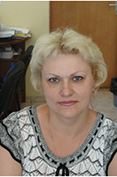
Irina Bugay
Head of Department
Associate Professor, Ph.D. in Engineering
Tel: +7 (495) 516-01-15
E-mail: mo_techuniv@mosreg.ru
MAJORS:
Bachelor's Degree
01.03.02 Applied Mathematics and Computer Science
- Profile 1 Programming, Mathematical Modeling
- Artificial Intelligence and Control in Space Systems
Period of study: Full-time - 4 years
Area of Professional Acitivity:
- scientific and departmental organizations involved in solving scientific and technical challenges;
- research and computing centers;
- research and production associations;
- educational organizations of secondary professional and higher education;
- public authorities;
- organizations involved in development and application of information systems, scientific achievements, products and services in the field of applied mathematics and computer science.
Objects of professional activity:
- mathematical modeling;
- mathematical physics;
- inverse and ill-posed problems;
- numerical technique;
- probability theory and mathematical statistics;
- operations research and system analysis;
- optimization and optimal management;
- mathematical cybernetics;
- discreet mathematics;
- nonlinear dynamics, computer science and management;
- mathematical models of complex systems: theory, algorithms, applications; mathematical and computer methods of image processing;
- mathematical and informational support of economic activity;
- mathematical methods and protection software;
- mathematical and computer networking software;
- information systems and their research by methods of mathematical forecasting and system analysis;
- mathematical models and methods in the design of ultra-large integrated circuits;
- high-performance computing and parallel programming technologies;
- computational nanotechnology;
- intellectual systems;
- bioinformatics;
- software engineering;
- systems programming;
- e-learning and mobile learning tools, technologies, resources and services;
- applied Internet technologies;
- automation of scientific research;
- programming languages, algorithms, libraries and software packages, system and application software products;
- system and application software;
- data base;
- enterprise management system;
- network technologies.
Types of professional activity and tasks to be solved:
Research activity:
- study of new scientific results, scientific literature or research projects in accordance with the profile of the professional activity object;
- study of information systems by methods of mathematical forecasting and system analysis;
- study of large systems using modern methods of high-performance computing technologies, the application of modern supercomputers in the ongoing research;
- research and development of mathematical models, algorithms, methods, software, tools on the subject of ongoing research projects;
- formulation of scientific images, abstracts and bibliographies on the subject of research;
- participation in scientific seminars, scientific conferences and symposiums;
- preparation of scientific and technical publications;
design and production- technological activities:
- use of mathematical methods for modeling information and simulation models on the subject of applied scientific research problems or experimental design work;
- research of automated systems and information processing tools, administration tools and security management methods for computer networks;
- study of design elements for ultra-large-scale integrated circuits, modeling and development of software for optical or quantum elements for new generation computers;
- development of software and information support for computer networks, automated systems of computing complexes, services, operating systems and distributed databases;
- development and research of algorithms, computational models and data models for the implementation of elements of new (or known) services of information technology systems;
- development of architecture, algorithmic and software solutions for system and application software;
- study and development of programming languages, algorithms, libraries and software packages, system and applied software products;
- study and development of digital image processing systems, computer graphics, multimedia and computer-aided design;
- development and use of tools, automated systems in scientific and practical activities;
- application of high-tech technologies and software packages for solving applied problems in the field of physics, chemistry, biology, economics, medicine, ecology.
Results of mastering the basic educational programs.
As a result of mastering the Bachelor's program, the graduate must have the following competencies:
General cultural competences:
- ability to use the basics of philosophical knowledge to form a worldview position;
- ability to analyse the main stages and patterns of the society historical development for the formation of a civic position;
- ability to use the basics of economic knowledge in various spheres of life;
- ability to use the basics of legal knowledge in various spheres of life;
- ability to communicate orally and in writing in Russian and foreign languages to solve problems of interpersonal and intercultural interaction;
- ability to work in a team, tolerantly perceiving social, ethnic, religious and cultural differences;
- ability to self-organization and self-education;
- ability to use methods and means of physical culture to ensure productive social and professional activities;
- ability to use first aid techniques, methods of protection in emergency situations;
general professional competencies
- ability to use basic knowledge of natural sciences, mathematics and computer science, basic facts, concepts, principles of theories related to applied mathematics and computer science;
- ability to acquire new scientific and professional knowledge using modern educational and information technologies;
- ability to develop algorithmic and software solutions in the field of system and application programming, mathematical, information and simulation models, create information resources of global networks, educational content, application databases, tests and tools for testing systems and tools for compliance with standards and initial requirements;
- ability to solve standard tasks of professional activity on the basis of information and bibliographic culture with the use of information and communication technologies and taking into account the basic requirements of information security.
professional competencies:
in the field of research activity:
- ability to collect, process and interpret data from current scientific research that is necessary for drawing conclusions on relevant scientific research;
- ability to understand, improve and apply modern mathematical tools;
- ability to critically rethink the accumulated experience, change the type and nature of their professional activities if necessary;
in the field of design and production- technological activities:
- ability to work as part of a research and production team and to solve problems of professional activity;
- ability to carry out a targeted search for information about the latest scientific and technological achievements in the information and telecommunications network "Internet" and in other sources;
- ability to form judgments about the meaning and consequences of their professional activities, taking into account social, professional and ethical positions;
- ability to develop and apply algorithmic and software solutions in the field of system and applied software.
Master's Degree
09.04.03. Applied Computer Science
The major is focused on training qualified professionals who are able to carry out system analysis of the informatization applied area, develop projects for automation and informatization of applied processes, and create information systems in the applied areas.
Profile: Modeling and Design of Information Systems
Professions that a graduate can choose:
- Project Manager
- IT Administrator
- Programmer Engineer
- Developer
- Systems Analyst
- Technical Writer
- Process Engineer
- System Designer/Architect
Duration of Study: Full-time - 2 years
Specialized Department:
- "Control and Information Technologies in Space Systems" (on the basis of Maksimov Research Institute of Space Systems, a branch of Khrunichev State Research and Production Space Center (NII KS) in Korolev)
Partner Enterprises:
- Maksimov Research Institute of Space Systems, a branch of Khrunichev State Research and Production Space Center (NII KS);
- JSC "Tactical Missiles Corporation";
- NPO "Measurement Techniques".
Postgraduate study
02.06.01. Computer and Information Sciences (major: System Analysis, Information Management and Processing)
ACADEMIC STAFF
Irina Bugay

Irina Bugay
Associate Professor, Ph.D. in Engineering
Subjects taught:
- Differential Equations
- Complex Analysis
- Mathematical Analysis
- Methods of Optimal Control, Filtration, Identification
- Numerical Methods
- Special Sections of Mathematics
- Probability Theory and Mathematical Statistics
- Identification Methods in Analysis Problems and Structural-Parametric Synthesis of Complex Systems
- Academic Training
- Production Training
Kim Samarov
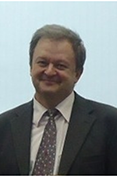
Kim Samarov
Professor, D.Sc. in Physics and Mathematics
Subjects taught:
- DifferentialEquations
- Equations of Mathematical Physics
- Mathematical Methods for Study of Operations
Elena Skripkina
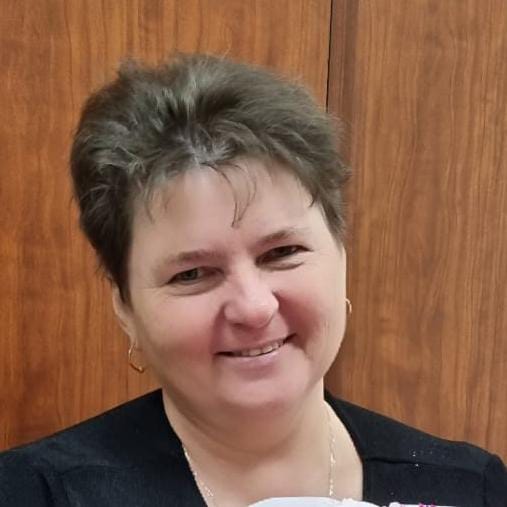
Elena Skripkina
AssociateProfessor, Ph.D. in Engineering
Subjects taught:
- Mathematical Analysis
- HigherMathematics
- Mathematics
- Graph Theory
- LinearAlgebraandAnalyticGeometry
- Special Sections of Mathematics
- ProbabilityTheoryandMathematicalStatistics
- Equations of Mathematical Physics
Oleg Raev
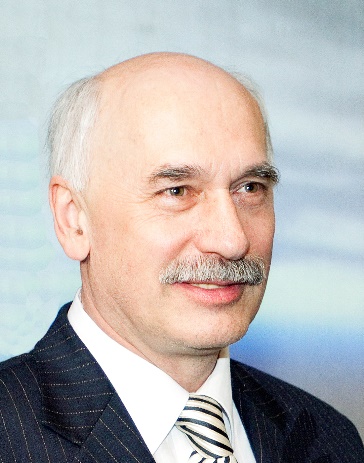
Oleg Raev
AssociateProfessor, Ph.D. In Engineering
Subjects taught:
- Development and Implementation of Project
- Designing Virtual Enterprises as Modern Business-Structures
- Software and Computer Tools for Image Processing
- Justification of Project
- Technologies and Systems for Collective Development of Programs
Alexander Mischenko
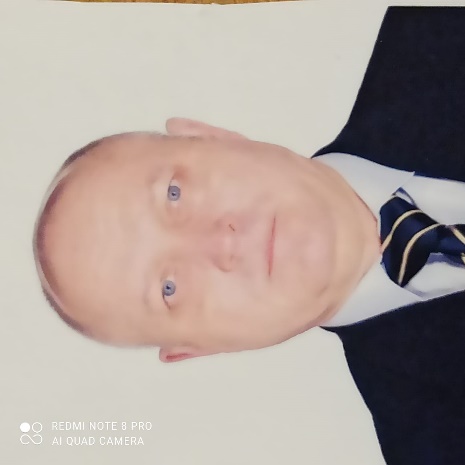
Alexander Mischenko
Professor, D.Sc. in Economics
Subjects taught:
- Methods of Optimal Decisions
- Theory of Random Processes
- Economic and Mathematical Modeling methods
- Mathematical and Instrumental Methods of Decision Support
- Models and Methods of Decision Making
- Methods, Algorithms and Systems of Intelligent Decision Support
- Theory of Search and Decision Making
- Measuring and Navigation Instruments and Systems
Nadezhda Kotonaeva
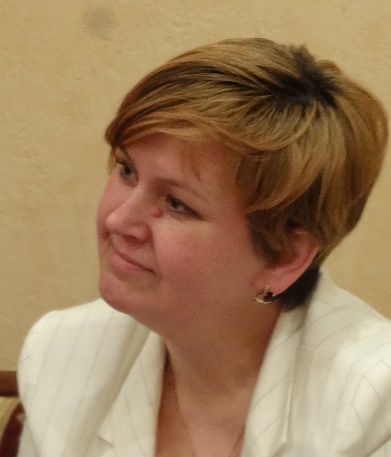
Nadezhda Kotonaeva
Professor, D.Sc. in Physics and Mathematics
Subjects taught:
- Fuzzy Logic
- Discrete Mathematics
- Mathematical Logic and Theory of Algorithms
Sergey Krivolapov
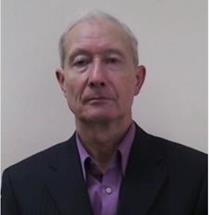
Sergey Krivolapov
AssociateProfessor, Ph.D. in Physics and Mathematics
Subjects taught:
- Methods, Algorithms and Systems of Intelligent Decision Support
- Mathematical and Instrumental Methods of Decision Support
- Big Data Analysis
- Geometric Modeling and Computer Graphics
- Theory of Experiment Planning and Analysis of Statistical Data
Afanasiy Ostrik
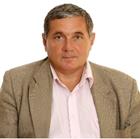
Afanasiy Ostrik
Professor, D.Sc. in Engineering
Subjects taught:
- Physics
- Theoretical Mechanics
- Numerical Methods and Computational Algorithms
Olga Borisova
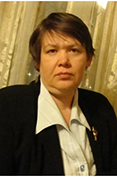
Olga Borisova
Associate Professor, Ph.D. in Physics and Mathematics
Subjects taught:
- Introduction to Profession
- Discrete Mathematics
- Mathematical Logicts and Algorithms Theory
- Mathematical Analysis
- Probability Theory and Mathematical Statistics
- Graph Theory
- Game Theory and Operations Research
- Logic Algebra and Discrete Analysis
- Econometrics
- Economic and Mathematical Modeling Methods
- Academic Training
- Production Training
Valerii Vilisov
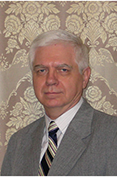
Valerii Vilisov
Professor, D.Sc. in Economics
Subjects taught:
- Methods of Scalar and Vector Optimization
- Embedded Ñontrol Systems
- Theory of Random Processes
- Optimal Solutions Methods
- Expert Systems
- Mathematical Methods for Operations Research
- Simulation Methods and Systems for Visualization and Analysis of Information in Complex Objects
- Optimization Methods
- Methods, Algorithms and Systems for Intelligent Decision Support
- Decision Support Systems
- Pre-graduation Internship
Tatiana Kuzina
Tatiana Kuzina
Senior Lecturer
Subjects taught:
- Mathematics
- Mathematical Analysis
- Probability Theory and Mathematical Statistics
Julia Pogodina
Julia Pogodina
Associate Professor, Ph.D. in Economics
Subjects taught:
- Linear Algebra and Analytic Geometry
- Mathematical Analysis
- Probability Theory and Mathematical Statistics
- Differential Equations
- Optimal Decision Methods
Nikolay Svetushkov
Nikolay Svetushkov
Associate Professor, Ph.D. in Engineering
Subjects taught:
- Software and Computer Tools for Image Processing
- Geometric Graphics
- Computer Simulation Systems
- High Level Languages
- Simulation Modeling and Planning of Computational Experiment
- Mathematical Methods for Processing Experimental Data
- Technologies and Programming Environments
- Numerical Methods
- Fundamentals of Computational Mathematics
Olga Chausova
Nikolay Svetushkov
Associate Professor, Ph.D. in Physics and Mathematics
Subjects taught:
- Higher Mathematics
- Mathematics
- Mathematical Analysis
- Methods of Mathematical Statistics in Professional Activity
- Probability Theory and Mathematical Statistics
The graduating Department "Mathematics and Natural Sciences" is the main educational and scientific structural subdivision of the State Budgetary Educational Institution of Higher Education Moscow Region "University of Technology".
The Department provides educational, methodological and scientific work on the content and profile of the assigned disciplines in accordance with the requirements of the Federal State Educational Standard of Higher Education, extracurricular and educational work with bachelors, post-graduate students and listeners.
In the 2019-2020 academic year, the Department taught 26 specialty disciplines, 85 Bachelor's disciplines, 8 Master's disciplines and 6 postgraduate disciplines for full-time and extramural forms of study.
Department Scientific Activity
The Department lecturers conduct scientific activity in the field of mathematics, physics, chemistry. They regularly make presentations at the universities and external conferences.
Project Activity
2017-2019: Project "Development of software for processing streaming telemetry data on thermal conditions for the "Spektr-RG " . The project owner - the Lavochkin Research and Production Association. This project was carried out as part of a joint study of Russia and the European Union within the "Spectr-Rentgen-Gamma" space program.
2018: Project "Development of Software for Numerical Simulation of the Heating Process of Centrally Symmetric Body Using a High-Power Laser Source" for the United Institute of High Temperatures of RAS.
2018: Project for company "MIKRAN " on developing software based on the OPEN CV package for identifying objects moving at a certain speed.
2020: Development and creation of the programmable model of anthropomorphic robot arm on the Arduino platform, which includes six rotary servers, an ultrasonic distance sensor and two "fisheye" infrared distance sensors. This project is intended for use in the training program for testing during development of control software for robot-typed systems.
Confidentiality
Personal data of employees are provided in accordance with the Consent to the processing of personal data
Policy regarding the processing of personal data
Information about the current requirements for the protection of personal data
Useful links
Contacts
141070 Moscow Region,
city of Korolev, st. Gagarin St., 42
+7 (495) 516-99-29
+7 (495) 516-99-46
